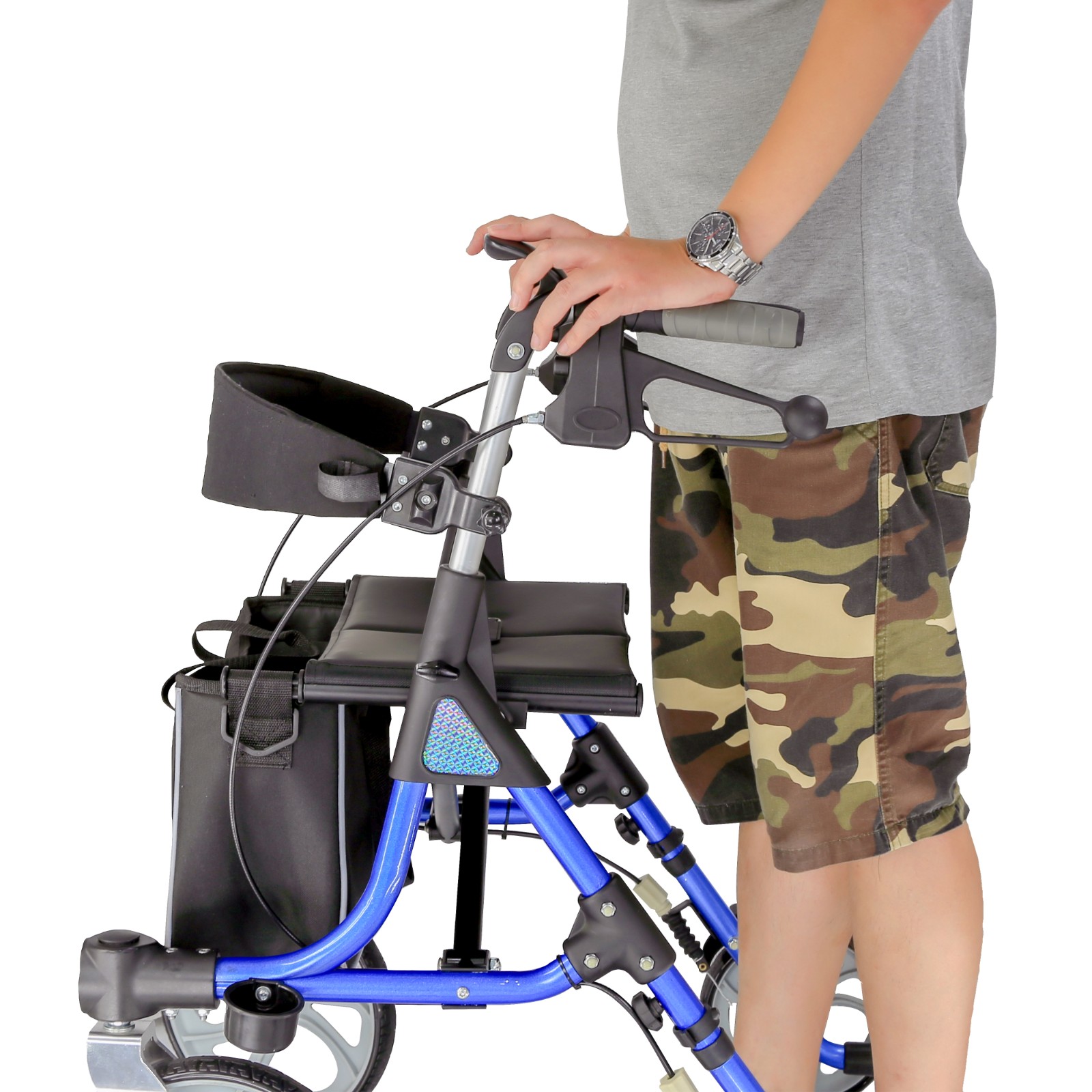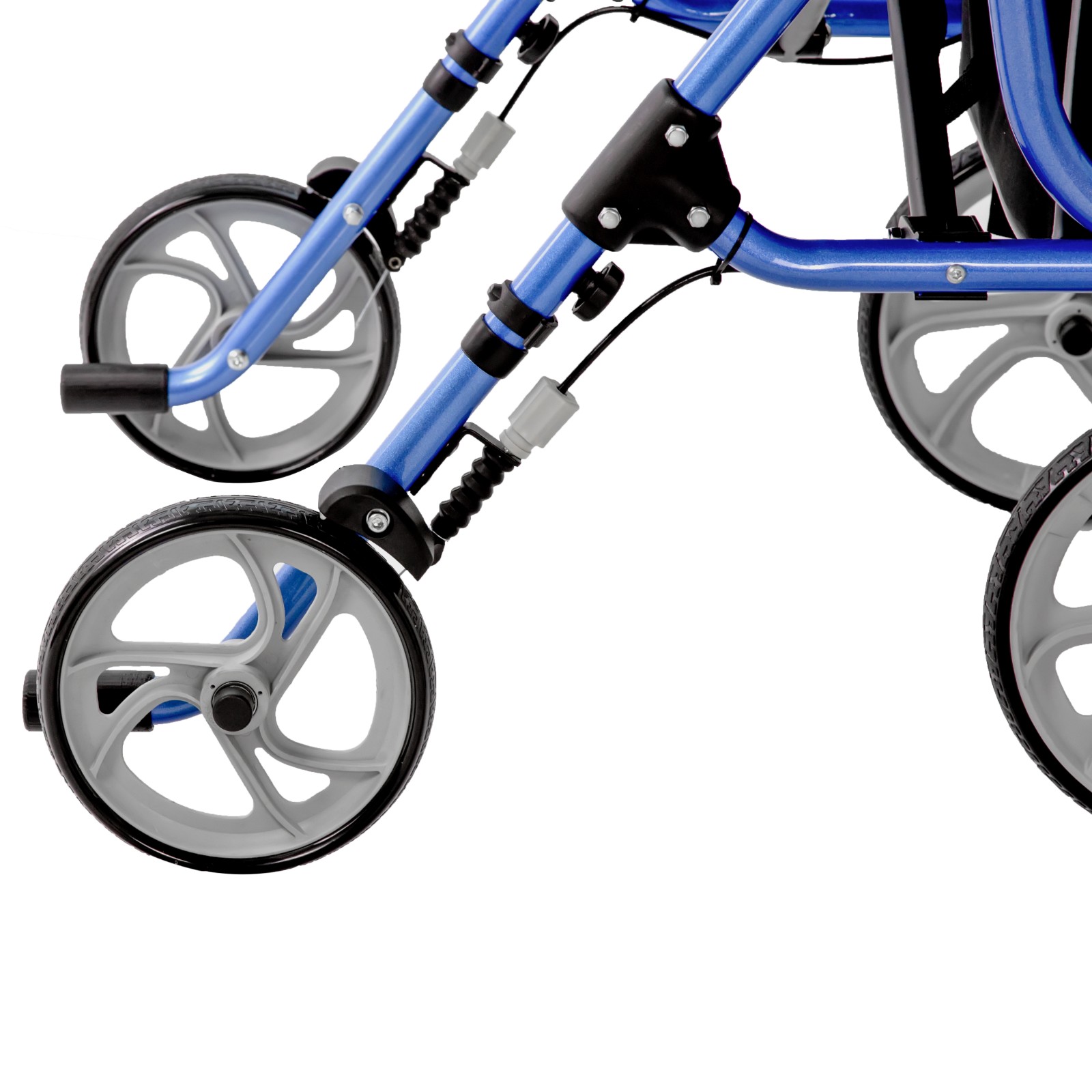
Who Should Not Use a Rollator Walker?
2024-05-14 15:30
The rollator walker is a commonly used walking aid for many people with mobility impairments, the elderly and recovering patients. However, using a rollator walker is not suitable for everyone. Depending on individual physical condition and needs, some people may need to choose other assistive devices.
This article will explore who should not use a rollator walker, and provide alternatives that may be better suited for them. Then, further discuss what can be done to help people with mobility difficulties improve their quality of life and independence.
Who should not use rollator walker?
A rollator walker is often seen as a convenient tool to help people with mobility issues walk and maintain balance. However, using a rollator walker is not suitable for everyone. Rollator walkers should not be used by people with severe balance problems, people who are unable to stand, people who require firm support, and people with certain medical conditions. People in these situations should seek other forms of assistive devices, such as walkers, crutches, or wheelchairs. By choosing the right tools, they can get safer, more stable support.
Here are some situations where rollator walker is not suitable:
1. People with severe balance problems: If a person has severe balance problems, using a rollator walker may increase the risk of falls. Because rollator walker requires users to have certain stability and control capabilities.
2. People who are unable to stand: Some patients may be unable to remain standing due to illness or injury. If the rollator walker is used under such conditions, excessive fatigue or accidental falls may result.
3. People who need a firm fixed support: Some people may need a stronger fixed support, such as a walker or crutches, to ensure stability and safety when walking.
4. People with specific medical conditions: Some medical conditions, such as Parkinson's disease or other conditions that affect balance and movement coordination, may make the use of the rollator walker unsafe.

What alternatives are suitable for people who are not suitable for using a rollator walker?
For those for whom a rollator walker is not suitable, there are alternative aids that provide better support and stability. These alternatives include: walkers, crutches, wheelchairs, walking frames and caregiver assistance.
1. walkers: walkers provide better support and stability. They have four wheels and often come with a seat and basket for those who need more support.
2. Crutches: Crutches are one of the most common walking aids. They provide a simple solution for anyone who needs a little extra support.
3. Wheelchair: For people with very limited mobility, a wheelchair may be the best option. The wheelchair provides complete support and comfort to the user.
4. Walking frames: Walking frames are another option that offer more support. They are generally more stable than rollator walkers and are suitable for people with severe balance problems.
5. Caregiver Assistance: Sometimes, not all needs can be met with assistive tools. In this case, hiring a caregiver to assist with walking and mobility may be the safest option.
These alternative options can be selected based on an individual's physical condition and needs, providing them with better support and stability, ensuring their safety and comfort.

How can you provide support and assistance to people with mobility difficulties?
For people with mobility difficulties, in addition to choosing appropriate assistive tools. We can also help them regularly check and adjust assistive devices, home adaptation modifications, physical rehabilitation training, provide emotional support and encouragement, provide community resources, etc. These measures can help them improve their quality of life and independence.
1. Regularly check and adjust tools: Regularly check the performance and suitability of auxiliary tools to ensure that they meet the needs of users. If problems are found, they should be adjusted or replaced in time.
2. Home Adaptations: Adaptations in your home, such as installing handrails, ramps, or wider aisles, can improve safety and convenience for those with mobility difficulties.
3. Rehabilitation training: Working with a physical therapist to carry out rehabilitation training can help improve the balance and walking ability of people with mobility difficulties.
4. Regular physical examination: Regular physical examination can identify problems that may affect mobility and take timely measures.
5. Provide emotional support: Providing emotional support and encouragement to people with mobility difficulties can help them maintain a positive attitude and enhance their self-confidence and independence.
6. Provide community resources: Many communities provide resources and support for people with mobility difficulties, such as medical services, rehabilitation centers and volunteer assistance. Taking advantage of these resources can improve your quality of life.
By taking these steps, people with mobility difficulties can receive better support and assistance while maintaining their independence, improving their quality of life and well-being.
Summarize
While the rollator walker is a useful aid for many people, it is not suitable for everyone. For those for whom a rollator walker is not suitable, there are a number of alternative options and support measures available to provide help and support. By choosing the right tools and taking appropriate measures, people with mobility difficulties can achieve a better quality of life and independence.








